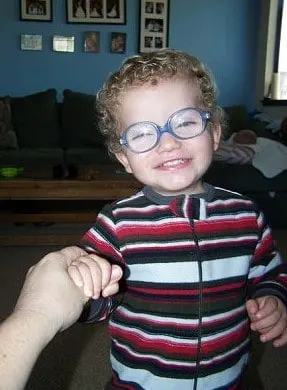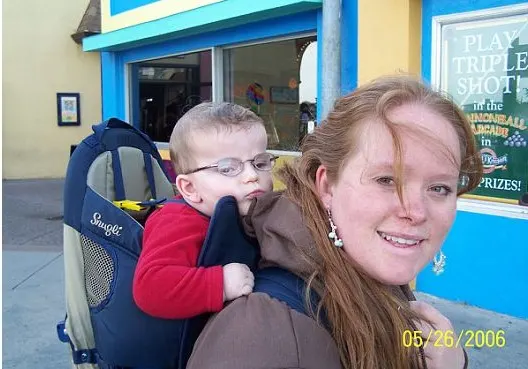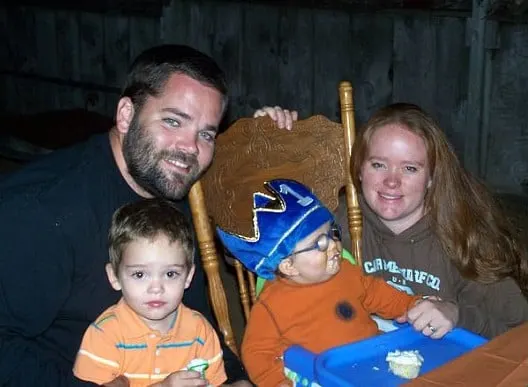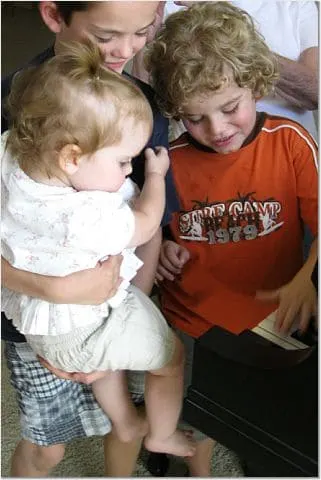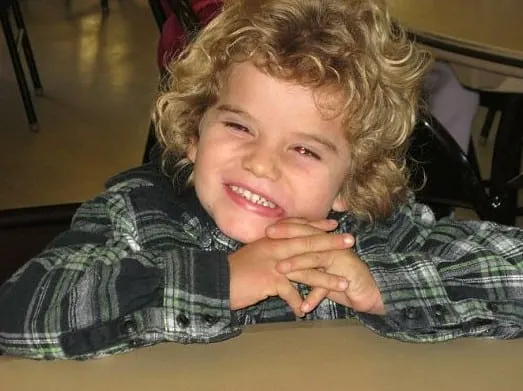When you sit down and plan out the rest of your life with someone, usually the dream consists of marriage, kids, the white picket fence, lots of laughter, and adventure. Not many people (including myself) actually says, “I hope my child has special needs.” Never the less, according to The Center For Disease Control and Autism Speaks, an overwhelming 1 out of 68 children in the United States have been diagnosed on the Autism Spectrum Scale and close to 14% of all American children have some sort of special need that impairs development. My family and I have learned that even though you have a child with special needs, your life shouldn’t stop. Getting out of the house and experiencing the world will lead to stronger family connections and may even open other people’s eyes to the love and joy that a child with special needs brings to their family. To tell you a few things we’ve learned about traveling with special needs children and how to accommodate your child on a trip, first I need to tell you how we discovered our son had special needs.
Our Story
After my husband and I welcomed our adorable and healthy 2nd child, Timothy, into the world, we noticed a few differences between his development and that of other kids his age. When he was 4 months old, we noticed that he didn’t seem to make eye contact with us, and after going to a pediatric optometrist, Timmy was outfitted with an incredibly cute pair of frames that made him look like a little professor. After receiving the glasses, he seemed to respond to us more, making eye contact and mimicking our facial expressions, making gurgling noises, and building up his stomach and neck muscles.
Right after Timmy turned eight months old, he began having what appeared to be a full body spasm, where every muscle in his entire body would painfully contract and then relax over and over again every few seconds and lasting for a few minutes at a time. When the set of contractions were finished, Timmy was exhausted and would fall asleep. We immediately took him to his pediatrician who scheduled an appointment for us with a pediatric neurologist a week later for tests and a diagnoses. Before our appointment with the neurologist took place, Timmy endured a painful thirty minute episode of spasms which began in our home and ended at the emergency room. Thankfully, we made a quick call to our neurologist on our way, and she met us at the hospital. She took a look at a video I had shot of Timmy on my cell phone, and diagnosed him with Symptomatic Infantile Spasms. She then gave us a list of websites to go to that would explain more about his condition and what to expect in the months that followed. She warned us that the information we would find was not good and that if we had any questions, to call her.
This was in the age before smart phones, so after driving home and putting our two adorable boys down for bed that night, my husband and I joined hands, sat down at the computer, and read what proclaimed to be a life sentence for our precious eight month old. There on the screen in front of us read that Timmy had a measly 3% chance of living. Basically, we needed to expect that in four short months, by Timmy’s first birthday, he would be completely brain-dead by the spasms continually putting pressure on his brain and turning it to mush. According to the facts proven in most cases before ours, Timmy would die before he turned three.
At that point my body seemed to put itself into cruise control and all of my energy was focused on the tasks at hand. Over the next few weeks, there were tears and a TON of prayers, a menagerie of blood tests, MRI’s, CT Scans, more blood tests, genetic tests, spinal taps, hospital stays, and so much more, but my family and I just tried to focus on soaking up every single moment with Timmy and praying that we’d have more time with him.
A few weeks later, after a week-long stay at a UCLA, we miraculously had an answer to our prayers. Timmy stopped having spasms even before any of the medications had time to resonate in his small body. Basically, we could go home, and expect that our nightmare was over…and thankfully, it was.
Read more about Timmy’s story and watch a video here.
Although we went through months of traumatic and devastating tests and prognosis’s, I count myself lucky that it was only months of not knowing if my child would survive. Some parents have to deal with those prognosis’s for years and years occasionally leading to them having to say goodbye to their baby…something I’m not sure I would be strong enough to survive myself. That being said, when Timmy started growing up a little more and suggestions were made that he might not have the “normal” development other children have, my husband and I were quick to figure out ways we could maintain a level of normalcy for our household while not putting our dreams and goals aside. We decided that we weren’t going to let any amount of “special needs” deter us from living the life we knew God desired for us and we desired for ourselves. We knew that there would be tough times, there still are many, but not letting those tough times dictate our lives has forced us to work together to bring positive experiences to our children through traveling, sightseeing, and having fun together. Below is a list of things we’ve tried and things we’ve learned that have helped us cope with the pressures of having a special needs/autistic child.
Tips for Traveling with a Special Needs Child
1. Nights Away
If you aren’t away from home very often, try spending the night at a family member or close friend’s home to see how your child will react. Timmy did not like spending the night anywhere but his own room, so it took many nights at our families’ homes to figure out that Timmy needed to be held by his Daddy at night until he fell asleep. He felt secure and safe only when in his Daddy’s arms. After a few years of this, he eventually grew out of it, and can sleep in a strange place, as long as people he knows are close by. For your child, maybe it’ll be the same way or perhaps a stuffed animal or blanket will be all it takes. A trial run before paying a large bill for a hotel room ensures that you have an idea of how your child will be able to cope in an unusual setting
2. Picture It
Dr. Stephen Shore, a professor at Adelphi University, author of Beyond the Wall: Personal Experiences with Autism and Asperger Syndrome, president emeritus for Asperger’s Association Of New England, and a man diagnosed with autistic tendencies, shared with me that one of the best items to take with you when you travel is a list of the day’s itinerary (in picture form if your child can’t read). Having that list gives your child a sense of empowerment and not a loss of control over his day. The PECS cards are highly valuable if you can afford them, and if not, there are many sites online that can provide you with free cards you download, print, and laminate yourself. A good option is to make a binder and Velcro the cards to the pages. Or, if your child likes to carry his own cards, punch a hole in the top and attach them to his belt loop preferably with a retractable cable key hook so he can look at them and communicate whenever he needs too.
3. Great Gear
I would highly recommend checking out Fun and Function for travel items and games. No child wants his special needs to be highlighted and that’s what I love best about Fun and Function. They deliver products and clothing that are creative and unique to highlight the child’s personality instead of their special need! One of my favorite Fun and Function products is the Weighted Compression Vest. The compression vest is a high quality vest that feels similar to wet suit material, but is adjustable to deliver a soothing squeeze to your child, similar to a hug. That could translate to fewer tantrums in public…YAY!
4. Plan Activities Around Your Needs
All of my kids love to explore the outdoors. Blending what your special needs child likes with your other children’s interests, can be done quite easily. For example, many museums today offer classes for children, but they’re making them accessible to special needs kids too. This might mean that there are extra staff members to lend a hand, that activities are more tactile, and may contain more music or sensory activities that accommodate everyone. Oftentimes symphonies have dress rehearsals that are free for kids to attend with their parents. The beauty of dress rehearsals is that it’s not quite as embarrassing when your child starts clapping his hands or jumping up and down with the music. Just make sure that before you attend a dress rehearsal you double-check to make sure it’s kid-friendly.
5. Find Accommodations That Support Your Needs
Most hotels today are up-to-date on handicapped requirements or have rooms that have larger bathrooms available upon request that are accessible by wheel chair. The Wyndham hotels in Austin, TX and Tampa, FL are now even offering autism-friendly rooms that provide families with special door alarms, child-proofed rooms, special toys and books, outlet covers, and even special menu items with gluten-free, casein-free, and soy protein options for children with special diets!
6. Resort Child-Care
Most resorts offer some form of child care or children’s programs that are special needs friendly. When you book a resort stay, be sure to sign up in advance for the children’s programs and tell them then the specific needs of your child. Oftentimes, if your child needs one-on-one care, they will assign an extra counselor to your child at no additional cost to you. Not only do you get superb care for your children, you and your spouse can relax knowing they’re in good hands.
7. Don’t Forget Lovey!
Most kids have a favorite toy or two and those toys can be incredible lifesavers when your child is getting sleepy or worn out. To keep lovey safe while on the road, check out Lost My Lovey I.D. Tags. If someone finds your misplaced treasure, they can call the number on the tag, give them the i.d. number, and get lovey returned safely to you. No personal information is given to whomever finds your lost toy, which keeps your family’s identity safe.
8. A Large Stroller
A large stroller can be a lifesaver for some kids. My son gets over-stimulated very easily in new places, so even though he can and likes to walk most places, we still push our large jogger along with us for when he gets burned out and over-stimulated. If Timmy starts to melt down, he climbs into his secure seat in the stroller, leans back, and sometimes pulls the shade down to make it dark and less stimulating. It has been so important for us to have a stroller with us, that we never leave home without it. If you have an older child, before you purchase a stroller, make sure to check the maximum weight capacity and that it’s suitable for your needs.
9. Take Breaks!
It is often very helpful if you space out your day to include small breaks. Going back to your hotel room and relaxing is not only extremely soothing, but allows everyone to reboot for the day.
10. Pack Snacks
Snacks are a great way to divert your little one’s attention from a tantrum. Almost every time my son’s about to panic, if I hand him a snack, he’ll instantly be better, buying me a few more minutes to enjoy a museum or show, or time to walk back to the car.
Having a plan is essential to a positive experience, and a few snacks don’t hurt either! Learning how to appropriately gauge your child, not only helps him to experience life in a new and extraordinary way, but helps you to live that way as well. I hope these tips can help you as you step out in freedom with your children and explore the world around you. Don’t get frustrated if it takes a few trips out of the house for you all to adjust to the change in scenery. Personally, I think that the key is to not let overwhelming obstacles stand in the way of your dreams with your family, but instead to stand up to those obstacles, define them, and conquer them. That is the true test of courage.
- Traveling With Special Needs Children - June 24, 2021
- Best Family Whitewater Rafting Trips - December 7, 2021

